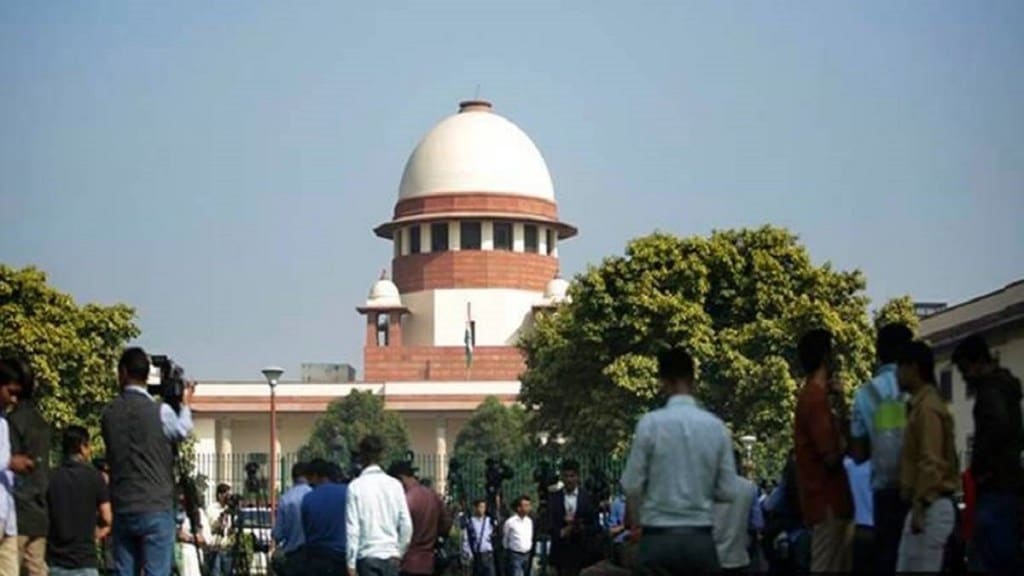The Supreme Court on Tuesday asked all the parties to file a common compilation on a batch of appeals led by the State Bank of India challenging the National Company Law Appellate Tribunal’s last year’s judgment that restrained the sale of the spectrum without clearing the government’s dues in an insolvency case related to debt-laden Aircel entities. A bench led by Justice NA Nazeer directed all the parties to file their submissions within six weeks under a “common compilation” after having discussions with each other. It also observed that the law needs to be settled on the issue. While senior counsel Mukul Rohatgi appeared for SBI, Attorney General R Venkataramani represented the government.
SBI-led committee of creditors of the Aircel group and UV Asset Reconstruction Company (UAVRCL), the successful bidder, had last year moved the apex court against the appellate tribunal’s April 13, 2021 order that held that the spectrum can be transferred as part of insolvency resolution plan only after clearing all the government dues and the defaulting licensees/telcos cannot be permitted to wriggle out of their liabilities by resorting to initiation of the corporate insolvency resolution process (CIRP) with “the malicious intent of withholding the huge arrears payable to government”, and “subjecting the Central government to contend with the peanuts offered to it as ‘operational creditor’.
The appellate tribunal order had come in the matter of Aircel, where the Mumbai bench of the National Company Law Tribunal had in June 2020 approved a `6,630 crore resolution plan of UAVRCL. Even in Reliance Communications’ case, the CoC has approved UVARCL’s resolution plan. Both Aircel and Reliance Communications owe adjusted gross revenue dues to the DoT. While the dues of Aircel stand at `12,389 crore, the dues of RCom are `25,199.27 crore.Stating that IBC explicitly places banks ahead of operational creditors, SBI, acting on behalf of the CoC of Aircel entities – Aircel, Aircel Cellular and Dishnet Wireless – told the SC that the NCLAT’s direction to settle DoT’s dues first would amount to preferential treatment to the government department, which happens to be an operational creditor, and therefore, “amounts to discrimination qua other operational and financial creditors of the Aircel entities.”
Also read Short on transparency
The CoC said that the NCLAT judgment is “inherently contradictory” as, on one hand, it holds that the right to use spectrum is an intangible asset of the corporate debtor and on the other hand it has ruled that the natural resource shall not be available for use without payment of requisite dues.DoT being an operational creditor cannot be paid in priority over other financial and operational creditors of the Aircel entities, it said, adding that the appellate tribunal also failed to consider the “dismal state of affairs” of Aircel entities before initiation of IBC proceedings.UARCL contended that while one of the elementary features of the resolution process is that all pre-CIRP debt gets resolved/discharged/settled in terms of the approved resolution plan, it is inconceivable that such operational debt would survive and mandate a priority payment.
Facing a financial crunch, the Airtel entities had on February 28, 2018, voluntarily applied for initiation of the corporate insolvency resolution process (CIRP) under the IBC, but the case got entangled in the adjusted gross revenue issue, in which the Supreme Court finally left it to the tribunal to decide if the spectrum can be part of the resolution plan.

